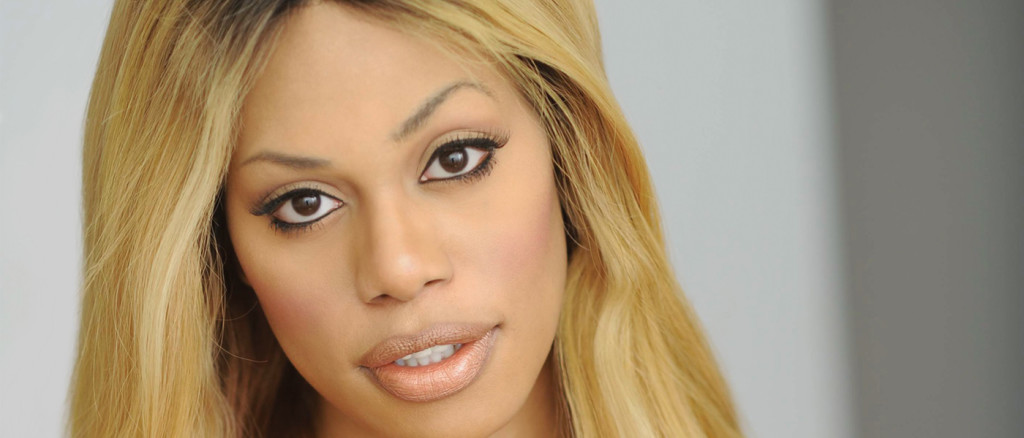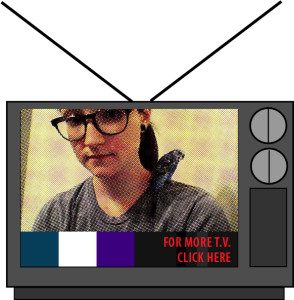October is LGBT History Month, and Syracuse University’s Lesbian, Gay, Bisexual and Transgender (LGBT) Resource Center is celebrating its conclusion in a big way. Laverne Cox, a star of the Netflix series Orange is the New Black (OITNB), will speak at the university on Wednesday, October 29, at 7:30 pm.

Cox, 30, is an actress and activist whose breakout success has introduced transgender issues to millions of viewers. Her presence in the media has educated audiences on health care issues, family struggles and discrimination faced by trans people. Cox’s performance and success are particularly noteworthy because she is transgender both on and off the screen.
“Transgender” (or simply “trans”) is an umbrella term for anyone who identifies as a gender that does not match the sex they were assigned at birth. Many trans people say that they feel “trapped” in their bodies, or that they were born with the wrong parts. Some choose to undergo surgery and hormone therapy to change their sex. Some do not. Others identify as non-binary – neither male nor female, but somewhere in between.
On OITNB, Cox plays Sophia, an inmate who faces discrimination from sexist, predatory guards and an administration that refuses to meet her health care needs. The show explores Sophia’s transition both from her perspective and from the perspectives of her wife and young son.
“[OITNB] has done a good job of highlighting the transition experience in a way they we don’t often get to see,” said Michael Riley, 24. Riley is not trans, but works closely with members of the trans community in his role as the assistant director of the LGBT Resource Center.
Honest depictions of trans people are a fairly recent development. In movies, they have often been depicted as pathological. Silence of the Lambs and Dressed to Kill feature trans serial killers. In early depictions on television, they were often the butt of the joke.
In a 1975 episode of All in the Family, television’s most famous curmudgeon, Archie Bunker, gave CPR to a transwoman. When she took off her wig, the studio audience exploded with laughter. Archie kissed a man!
In this situation, the butt of the joke was (as usual) Archie himself. But the trans character was still at the margins, and played for a laugh.
Riley says that it is important for members of marginalized communities – like trans people or people of color – to be depicted positively and holistically, to help combat stereotypes.
“The media is a huge way that people gather knowledge,” he said. “If they are given something skewed, that’s a disservice to everyone.”
Television is also a place where young trans people may first come to understand the meaning of their feelings.
“[That episode of All in the Family] was the first time that I could clearly see that a character was born with a male body but was living as a woman,” said Mallory Livingston, a local attorney, trans person and co-founder of the Transgender Alliance, a group that works to end discrimination and advance trans rights in New York State.
“I realized that there were other people like me,” she said.
Trans actors like Cox have an important platform to speak to the discrimination faced in trans communities. On Katie Couric’s talk show in June, Cox summed up the impact of trans stories.
“There’s so many amazing trans folks out there who are telling their stories,'” she said. “I think when we get to know people as human beings, all of our misconceptions about people who are different from us melt away.”
Cox’s success has brought a new momentum to trans visibility. But Riley says that Hollywood still has “a lot of work to do,” particularly in giving trans actors like Cox more roles.
“Hollywood needs to acknowledge that trans individuals have existed and continue to exist and do things [like acting] all the time, the same way everyone else does,” Riley said.
“Cisgender” is the term for individuals who identify with the sex they were assigned at birth, and thus are not transgender. Most trans characters in popular culture are played by cisgender actors, like Jeffrey Tambor in the new Amazon series Transparent and Felicity Huffman in Transamerica. Many in the trans community believe that cisgender actors can’t do justice to trans stories.
“Being trans isn’t a role someone plays, it is who they are,” says Tyler Sliker, 25, a trans person and a couples and family therapist in Syracuse. “To turn someone’s life into a role that anyone can jump into because it’s the hot social justice issue of the time is insensitive and belittling. You wouldn’t have a male actor play a female role.”
Jordan, 18, a trans freshman at Syracuse University, said that seeing trans stories on television – especially when they are embodied by trans actors – lets transgender people know they are not alone.
“It’s important for trans people to see themselves in the media,” Jordan said. “Then they can say, ‘There are other people who feel like this. I’m not a freak.'”
Tickets to Wednesday’s keynote are sold out.
Seasons 1 and 2 of Orange Is The New Black are available on Netflix streaming.
Sarah Hope is a graduate student at Syracuse University, where she focuses on television, entertainment history and classical music. Find her on Twitter @sarahmusing.




